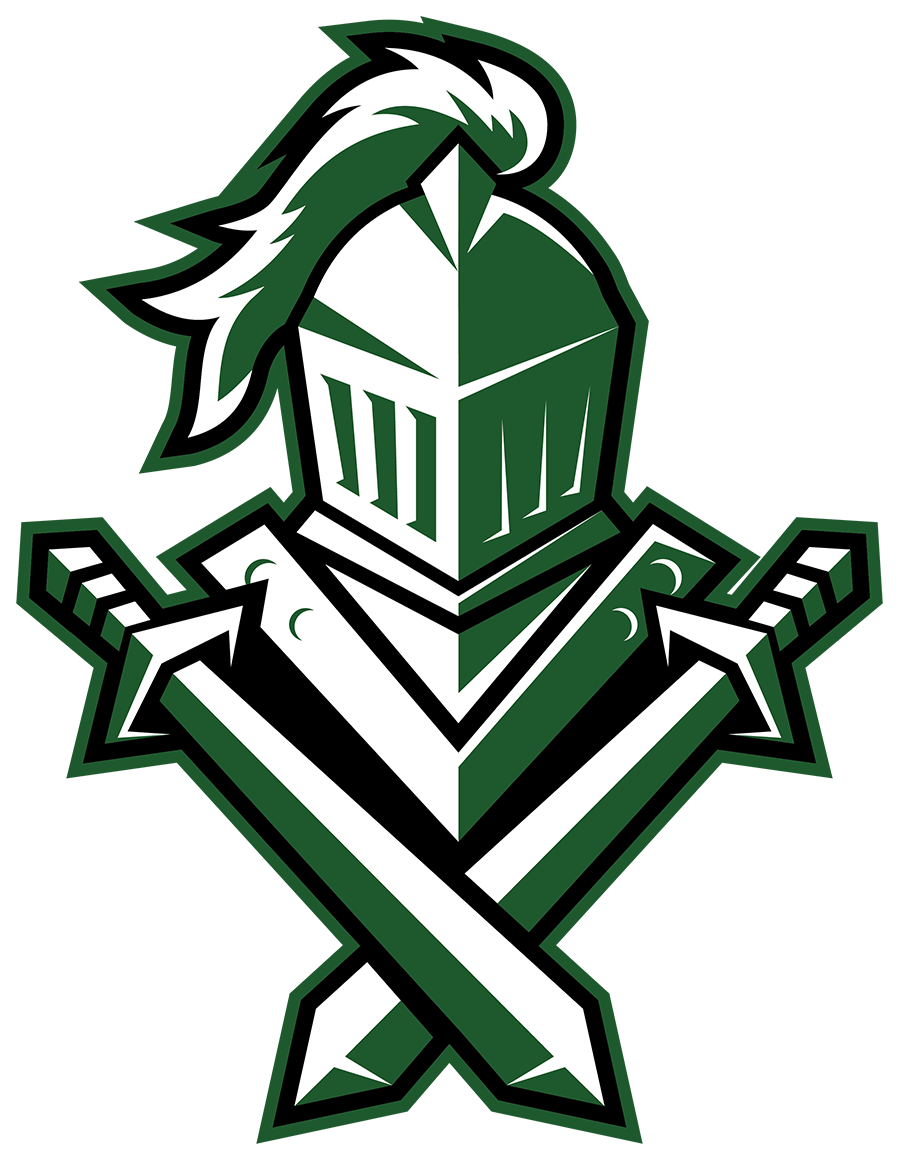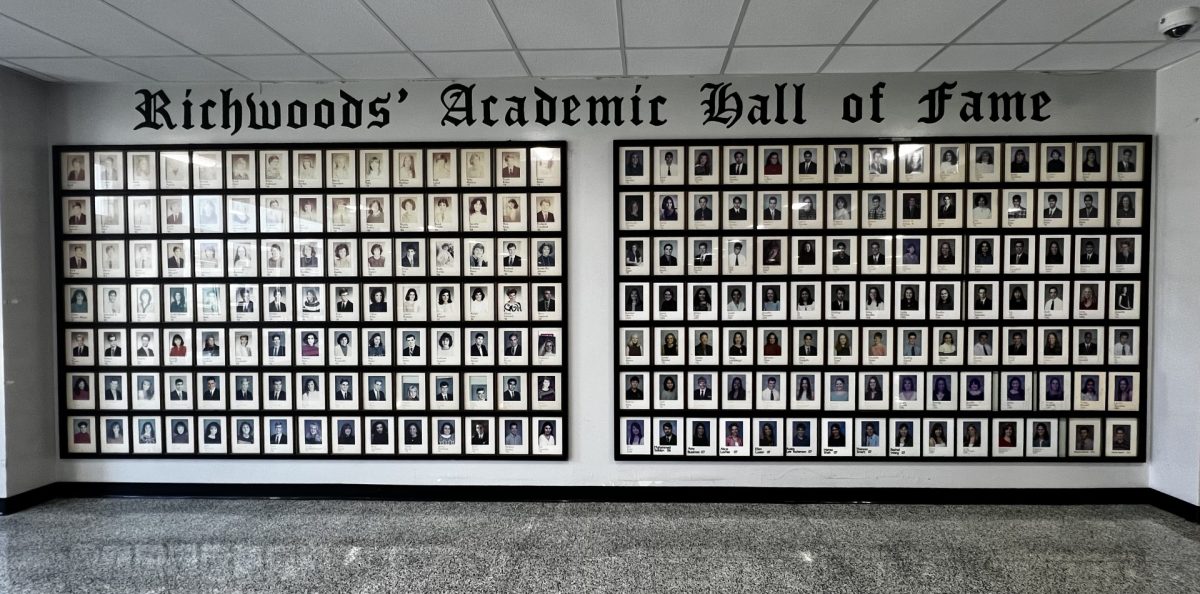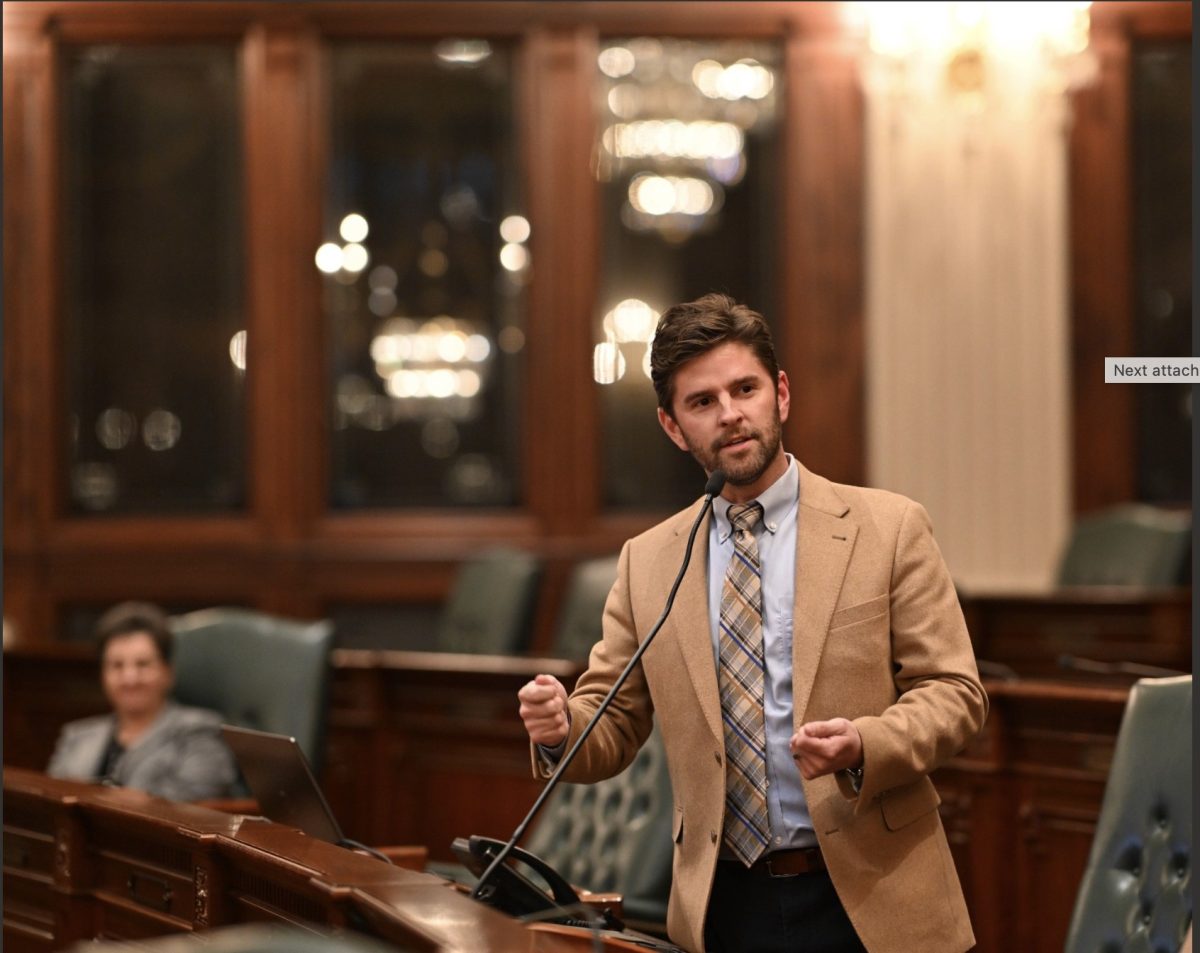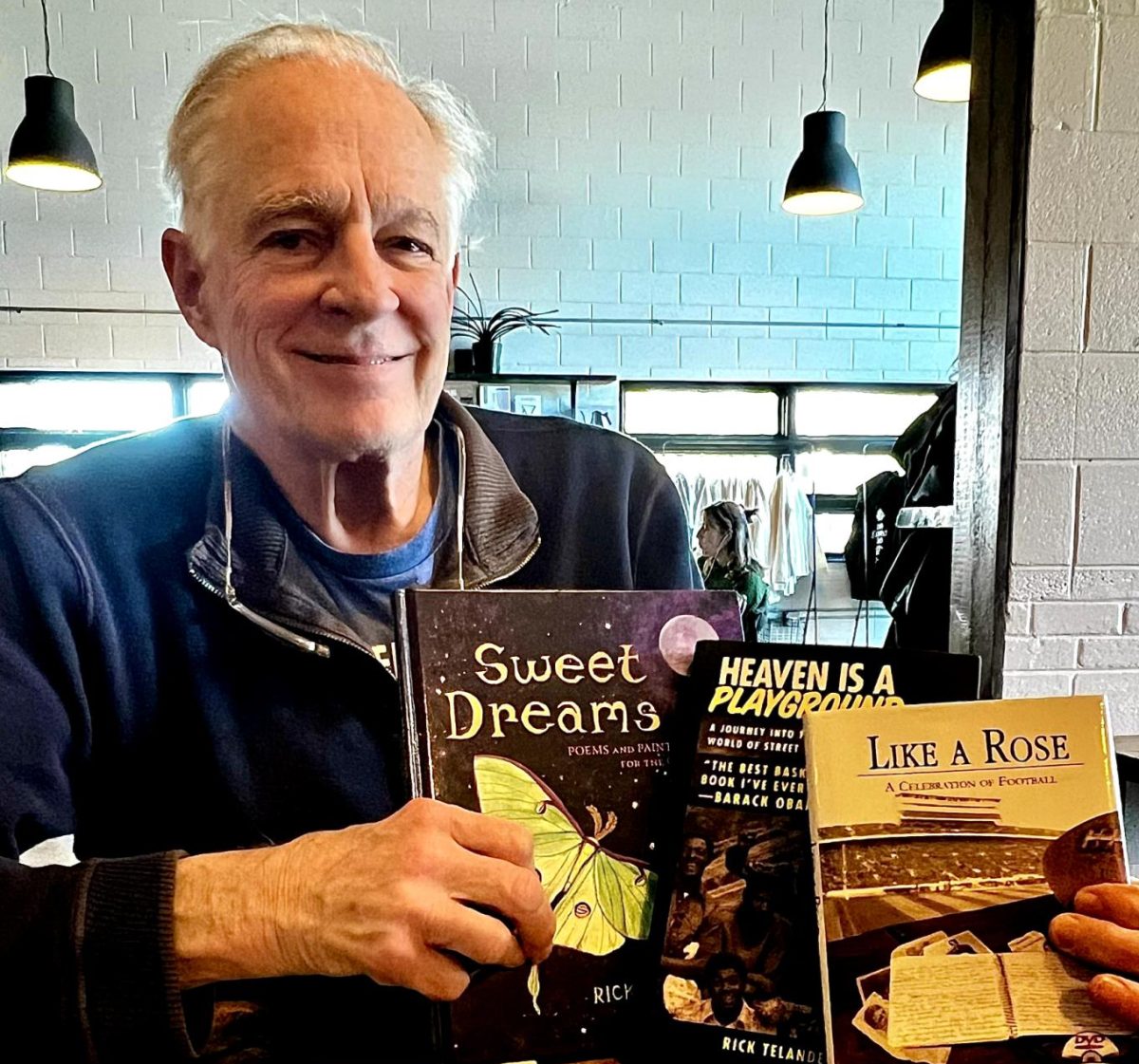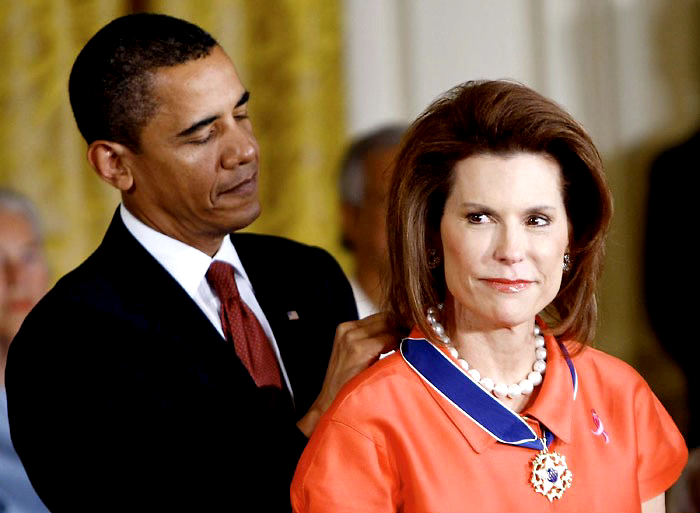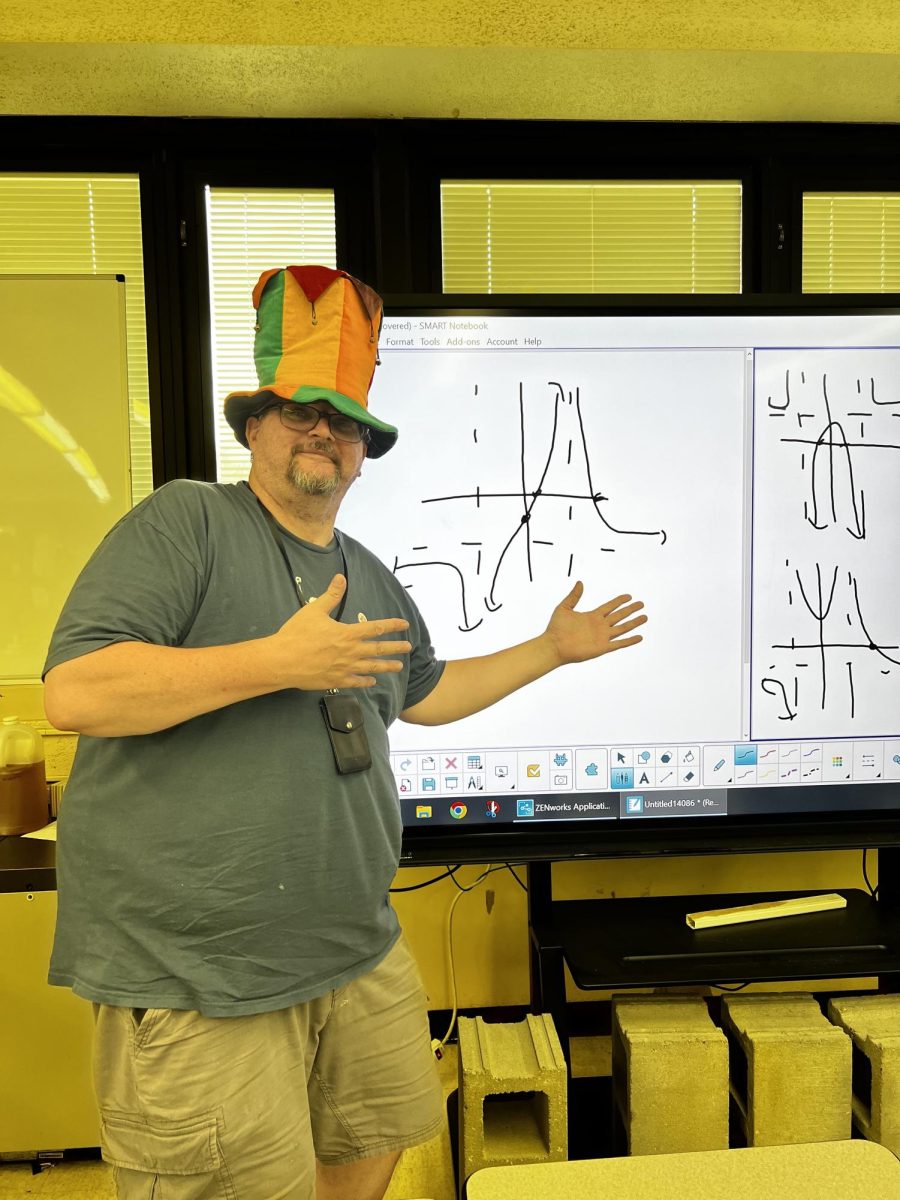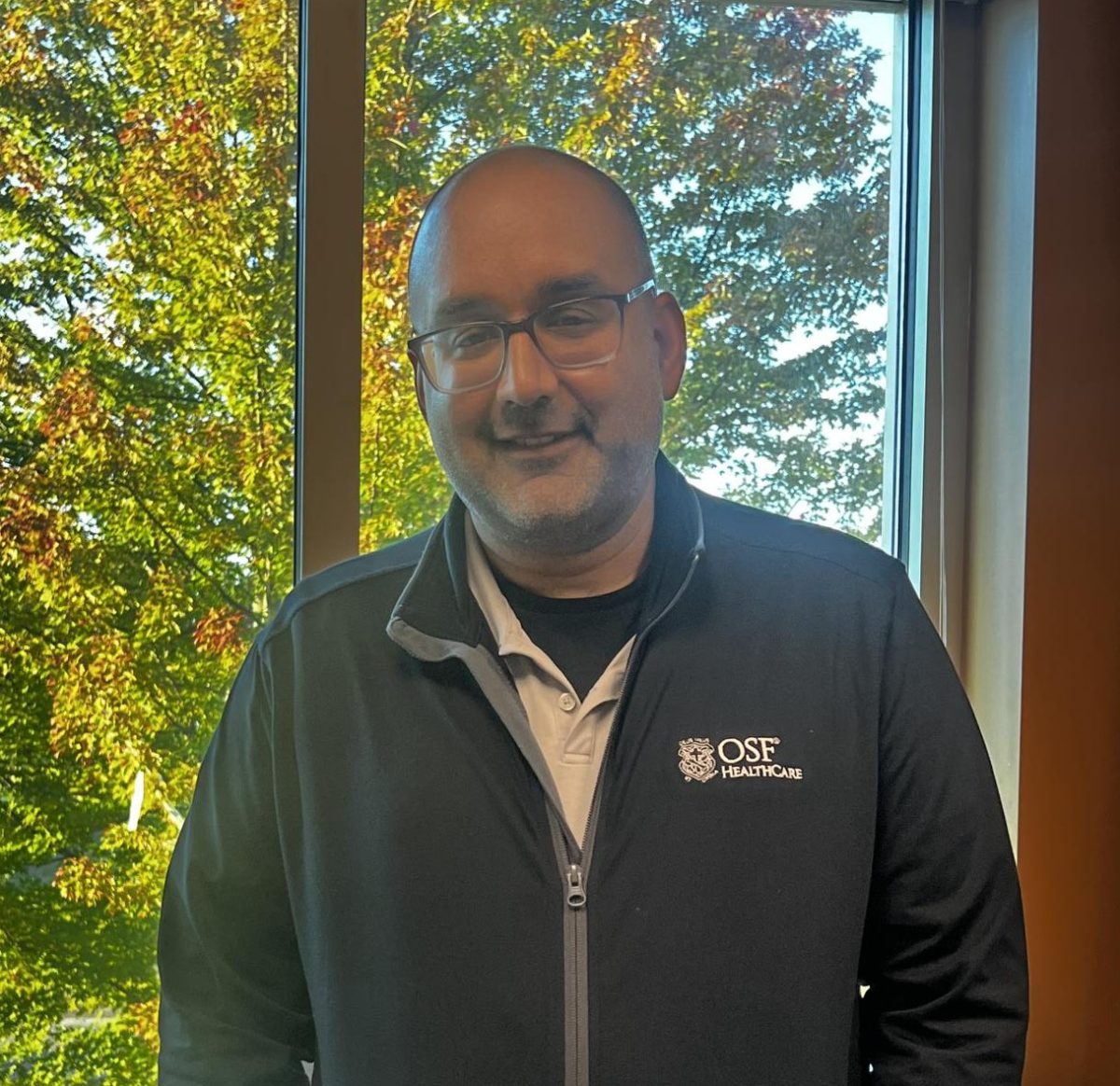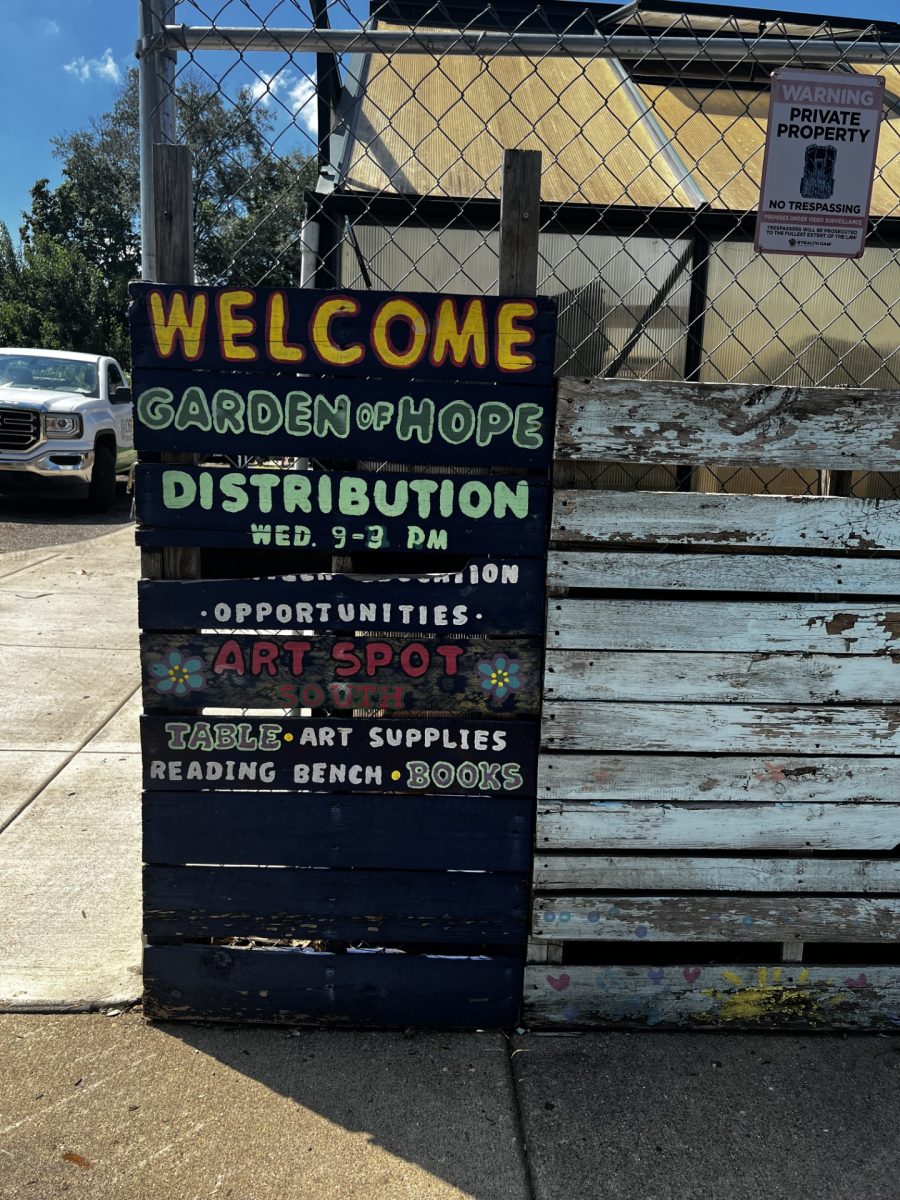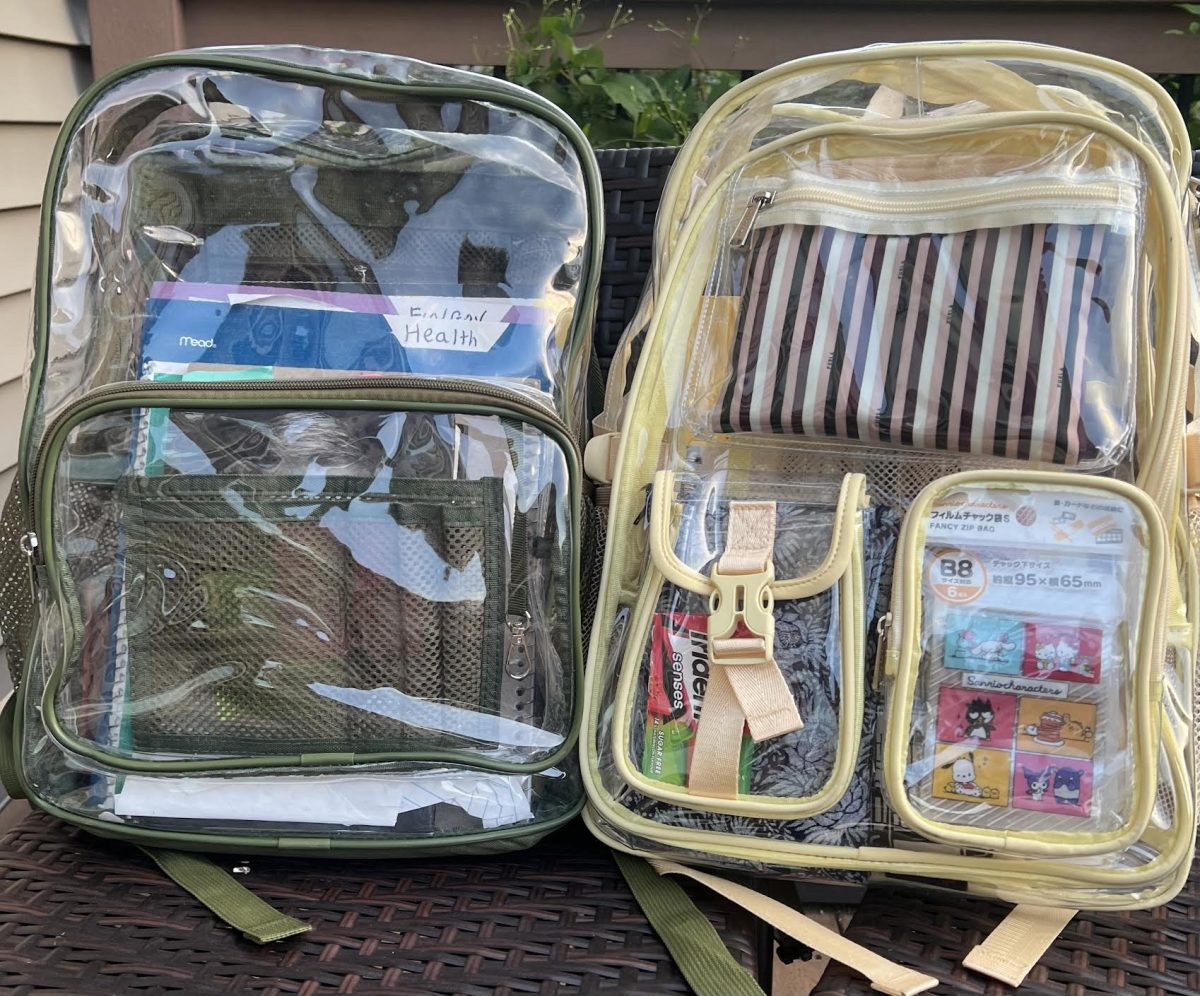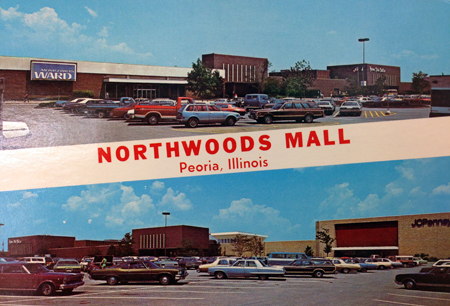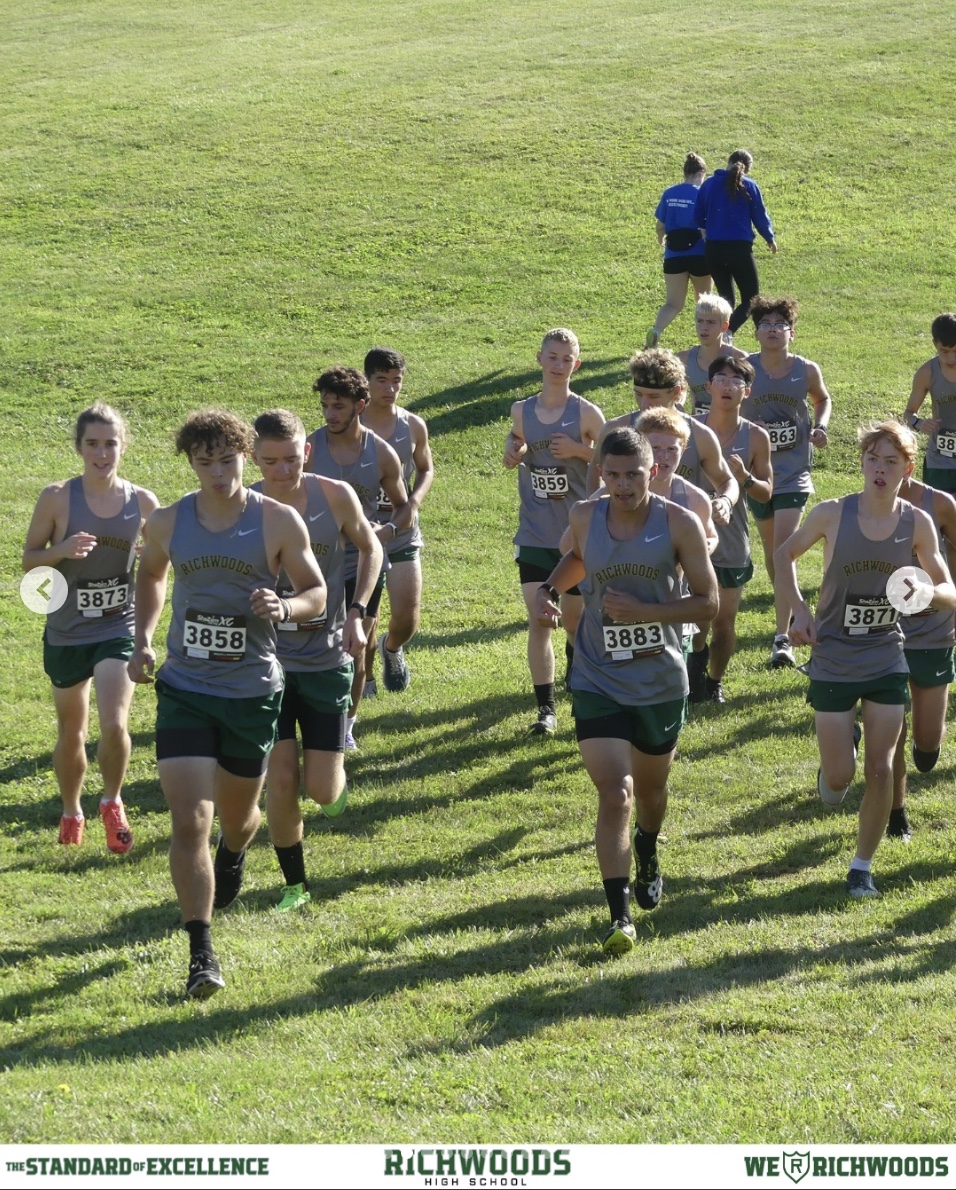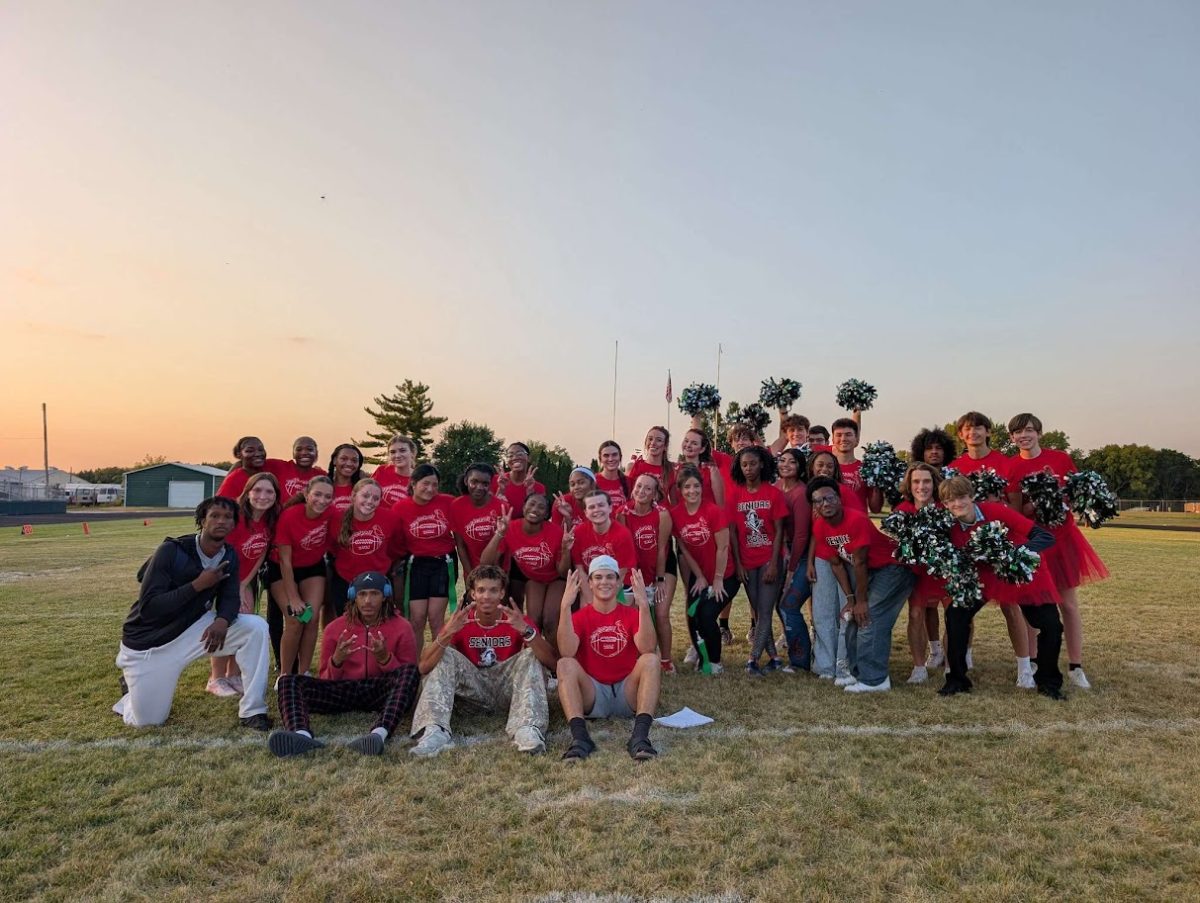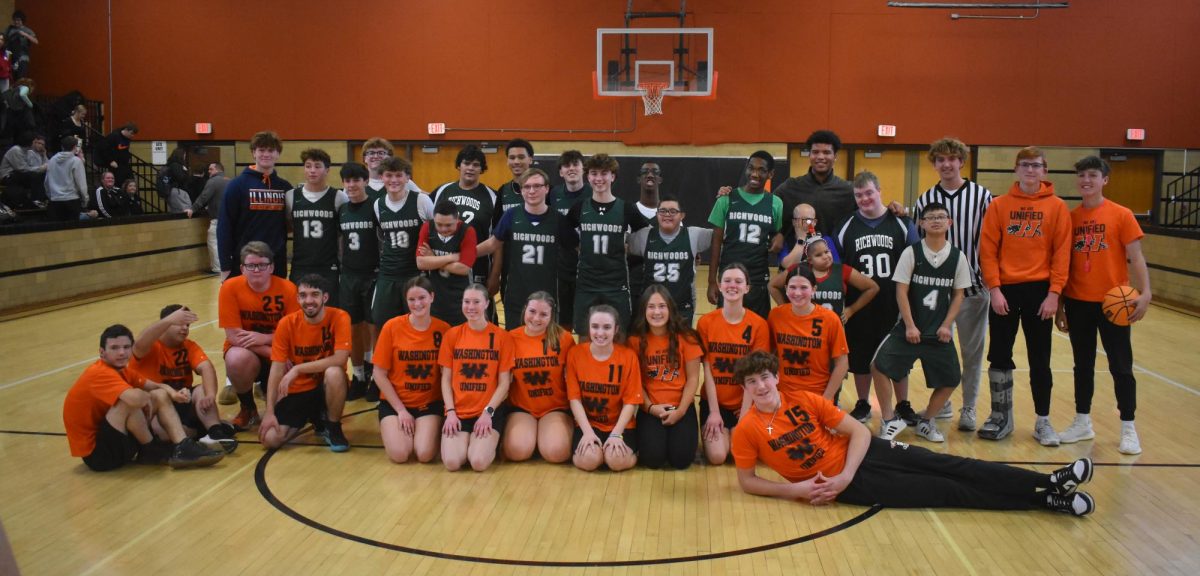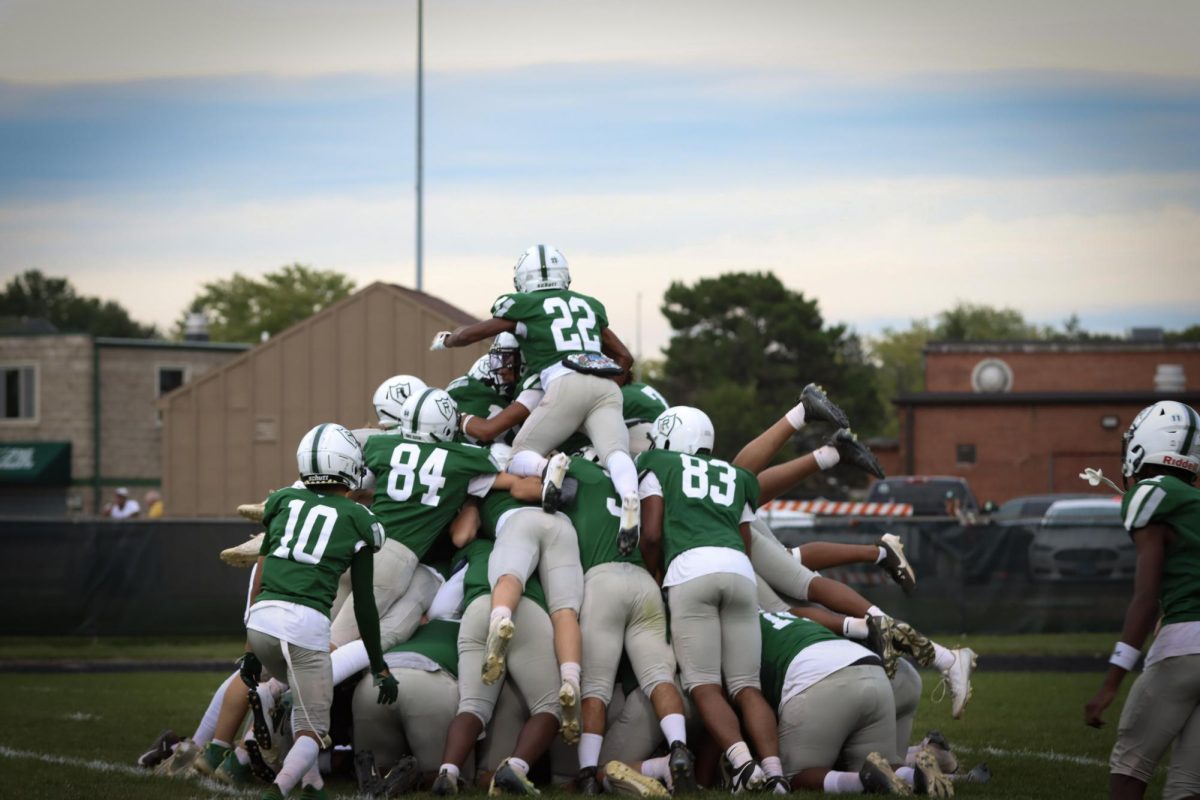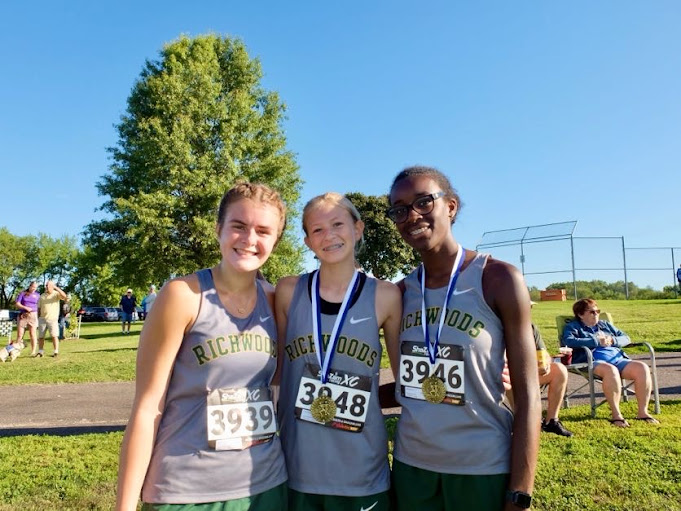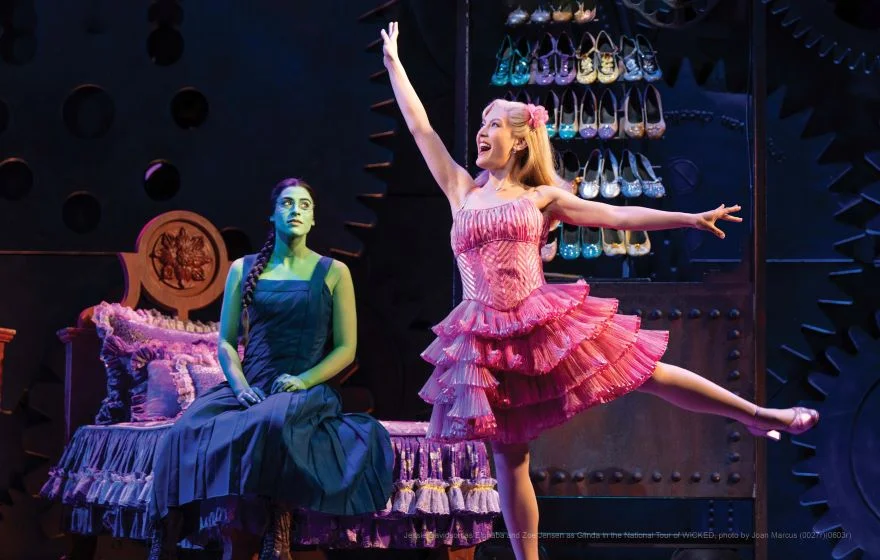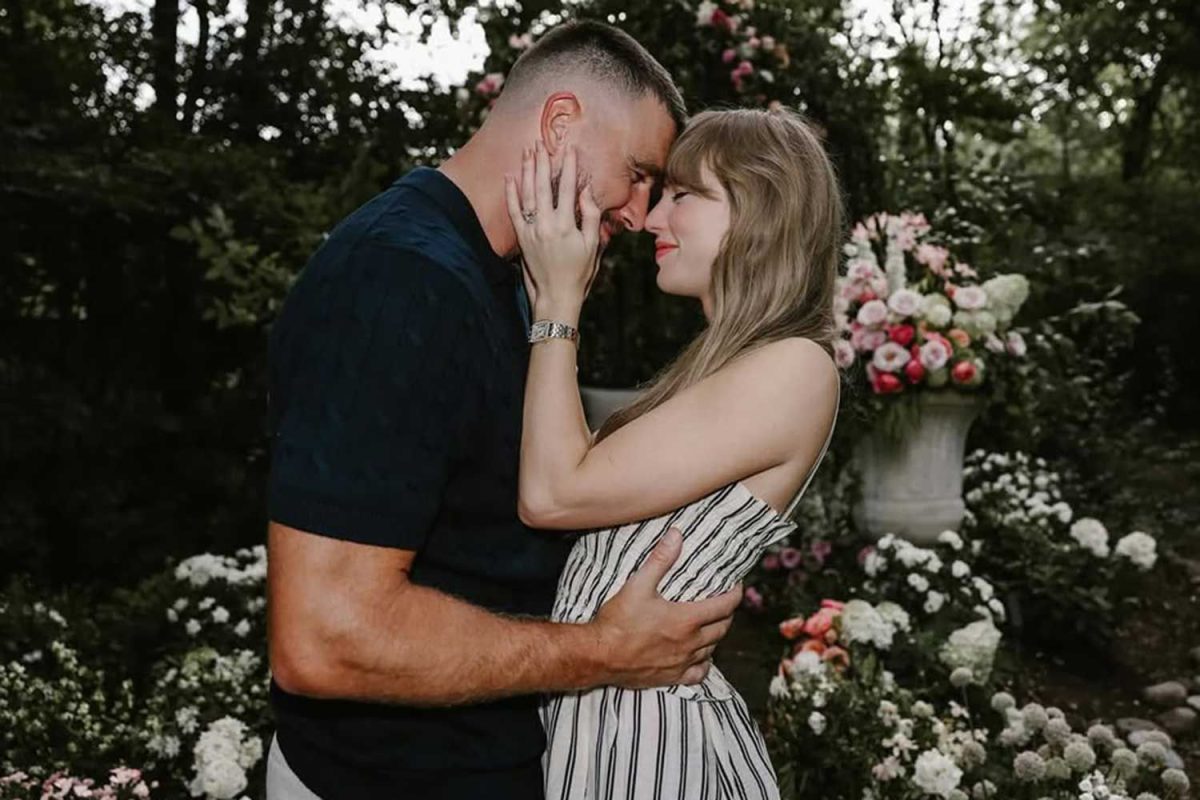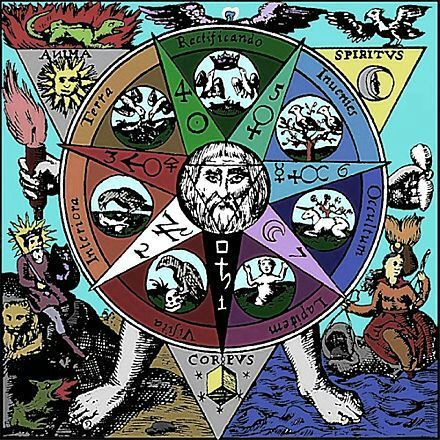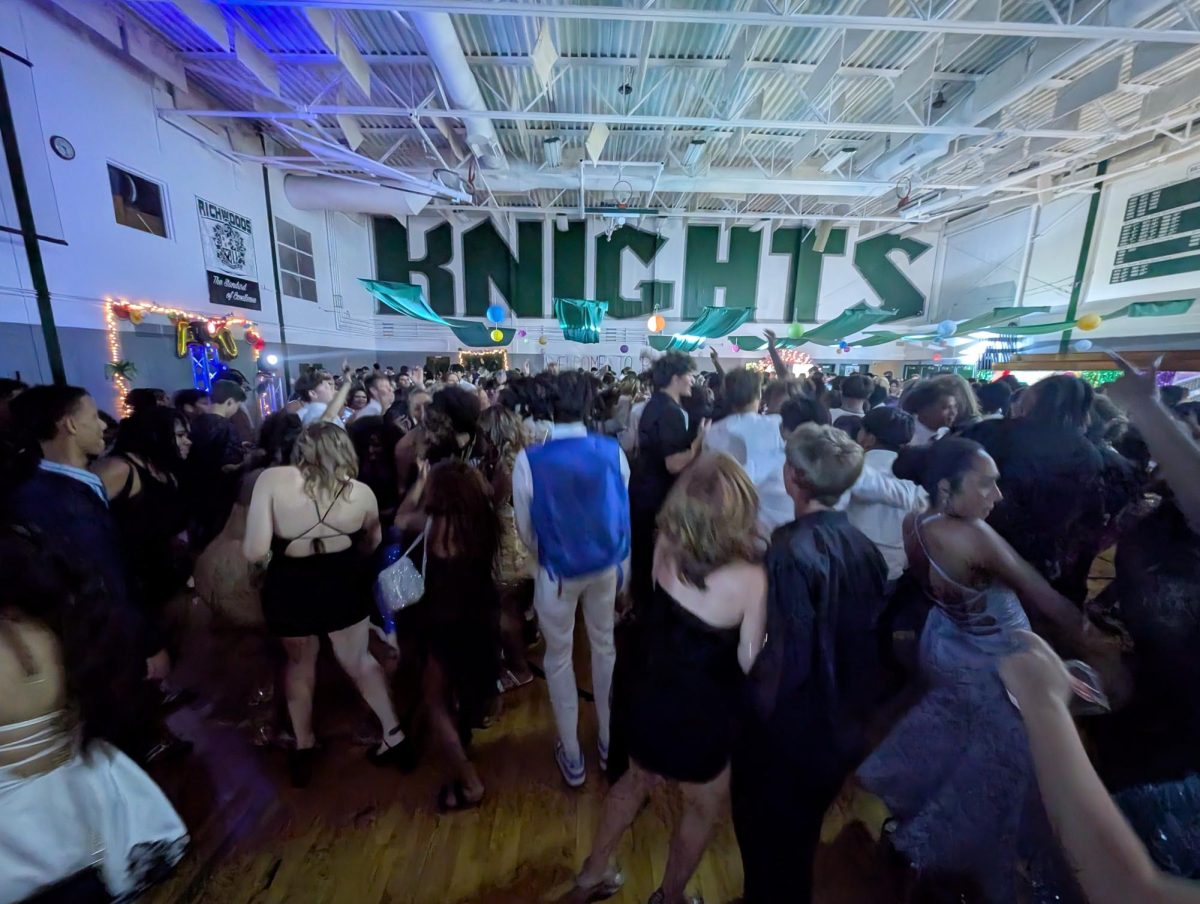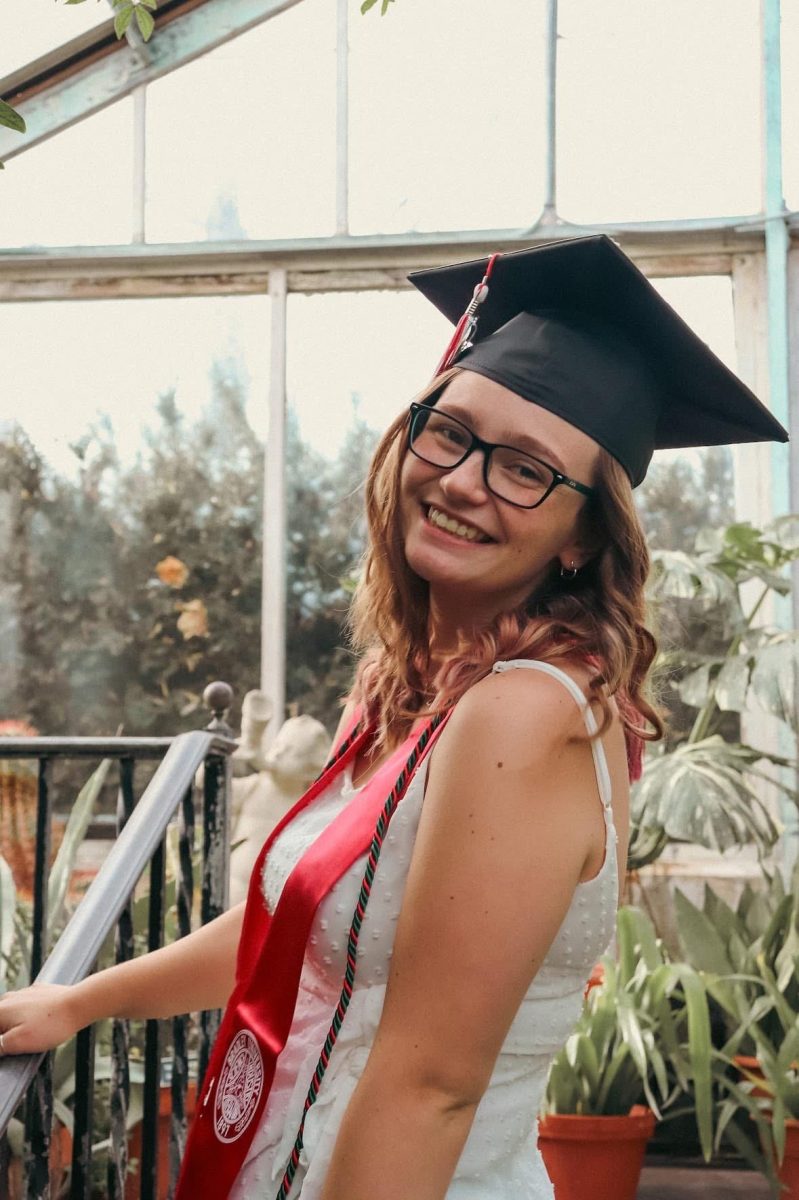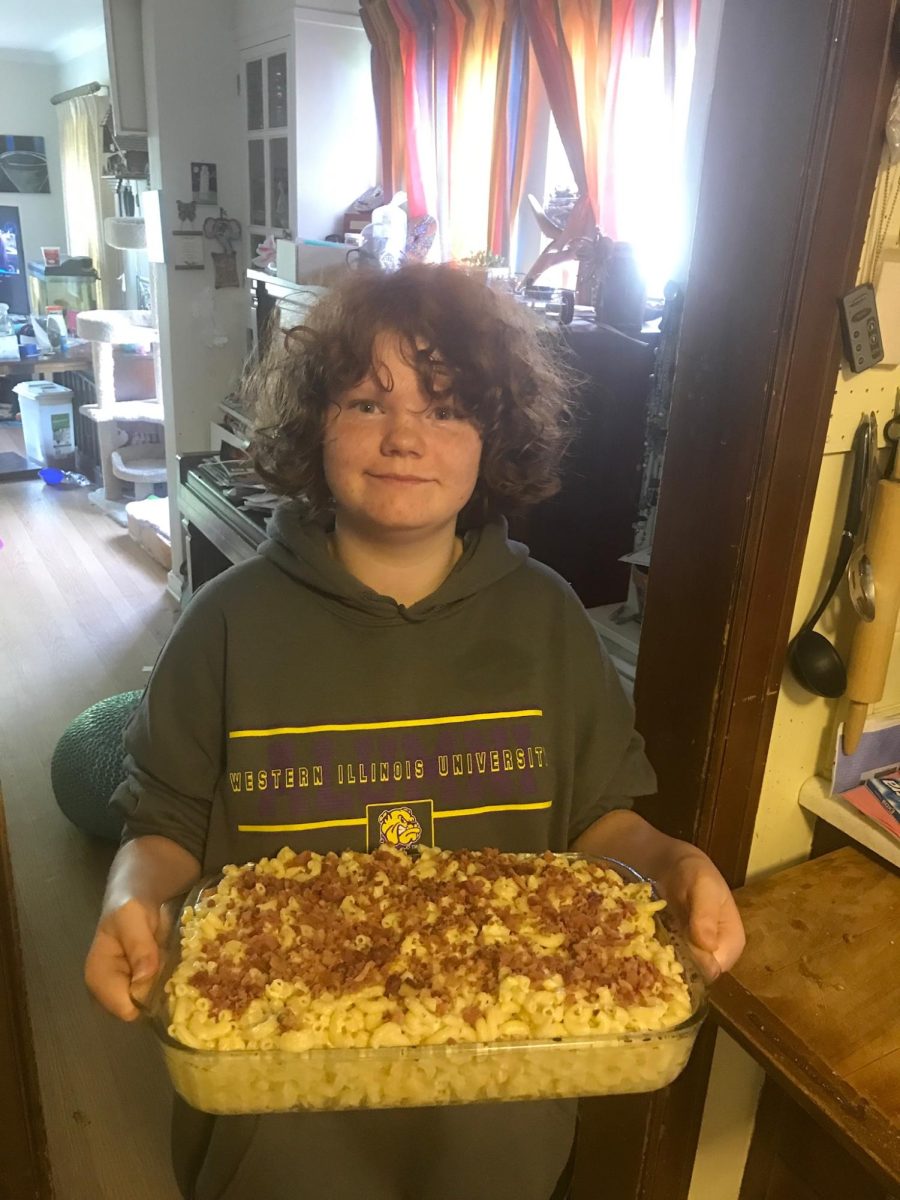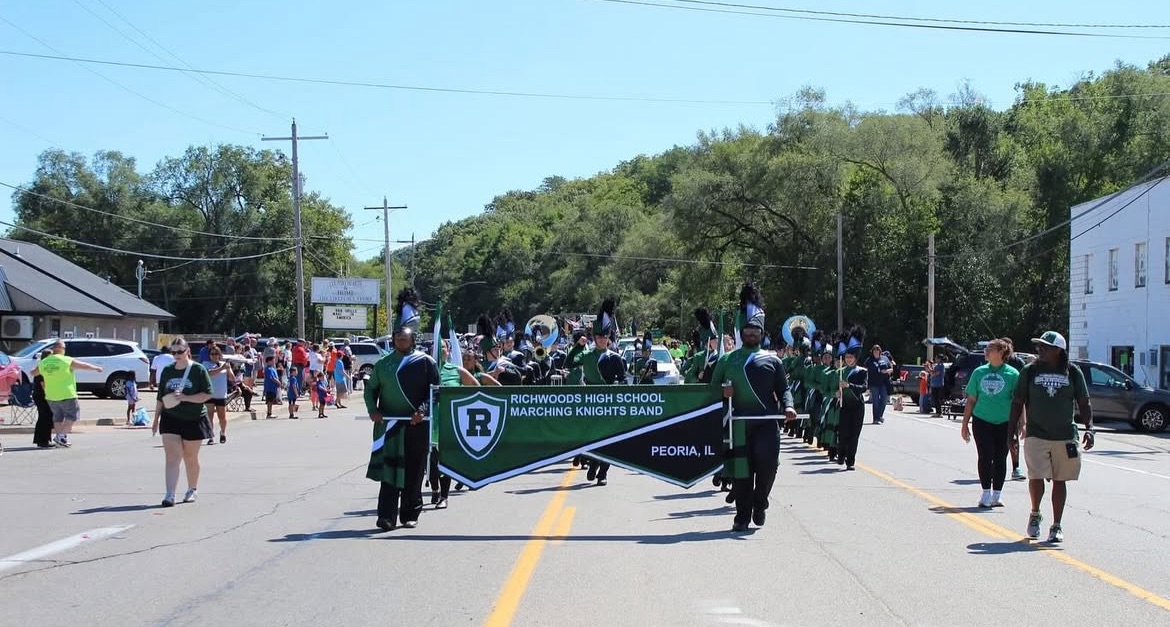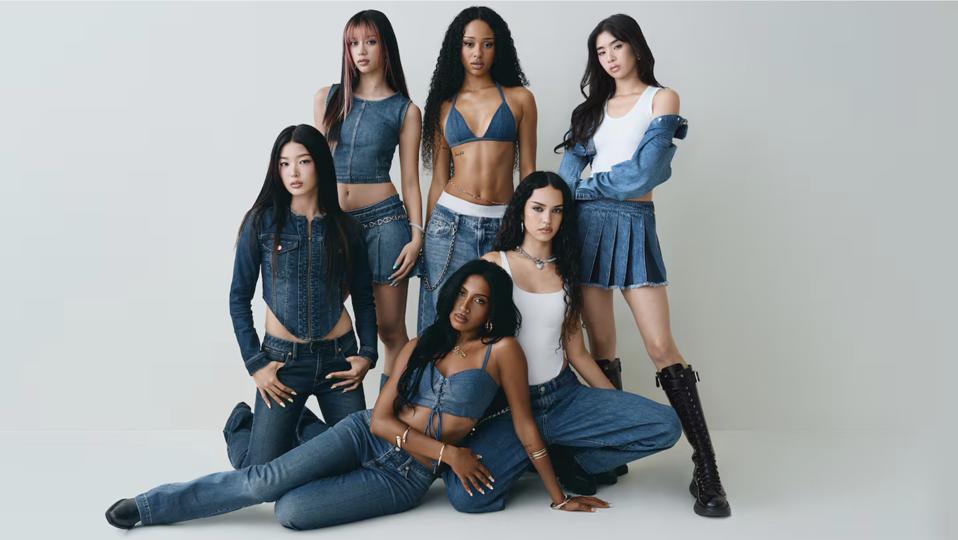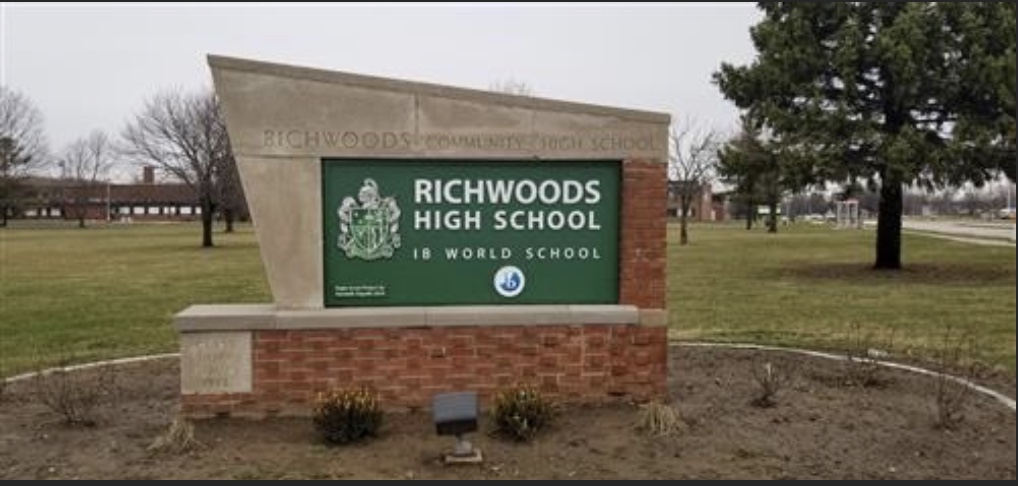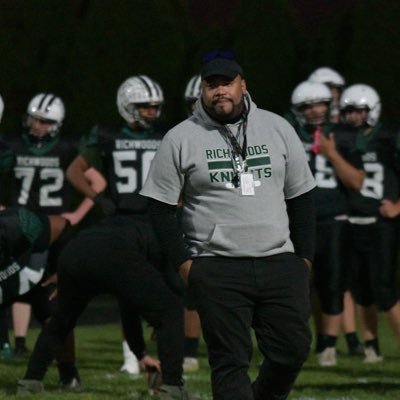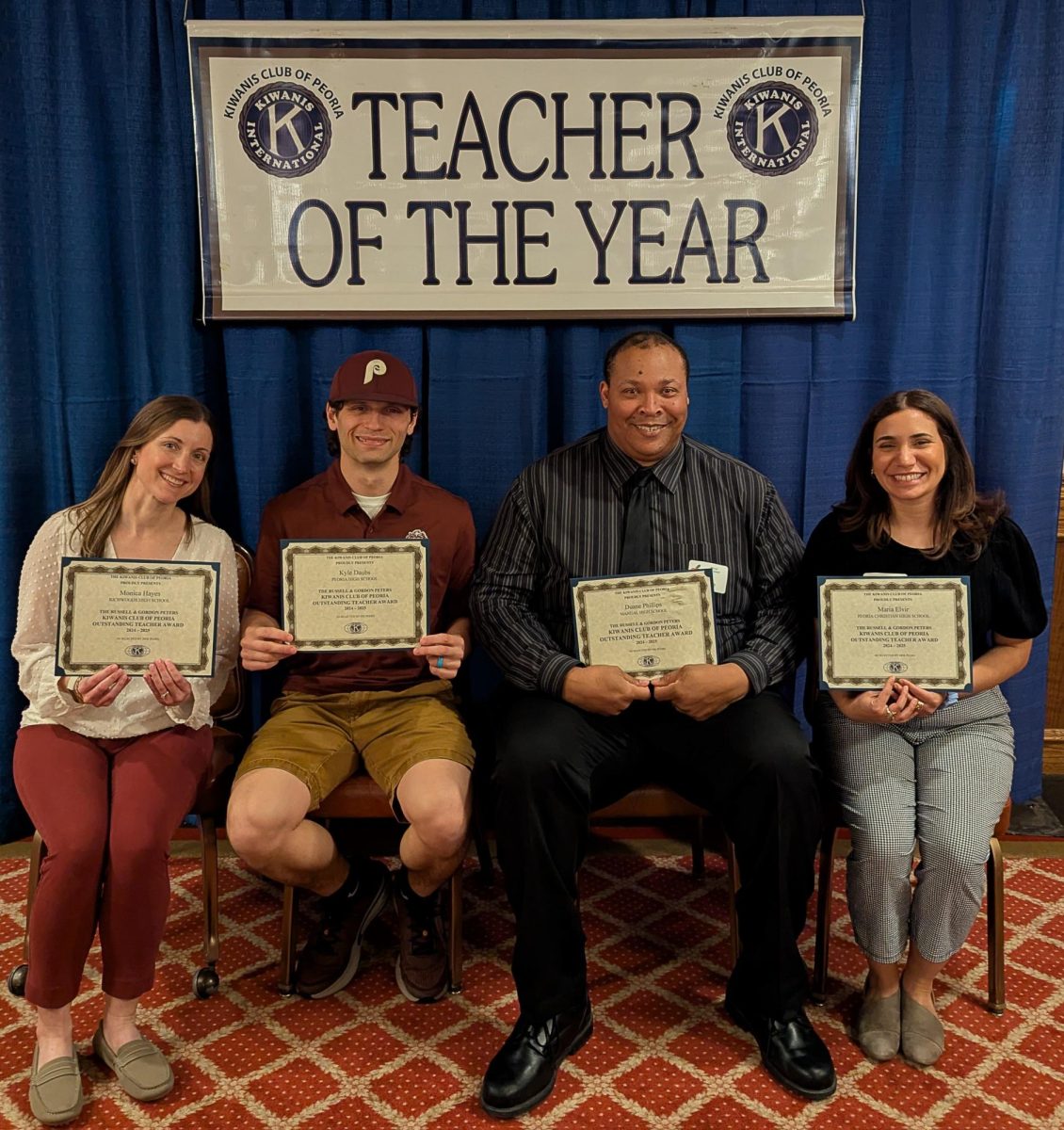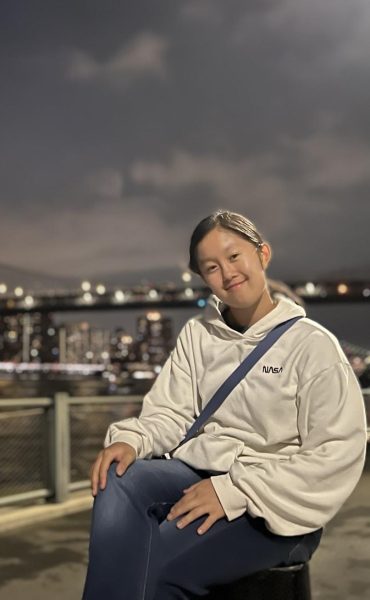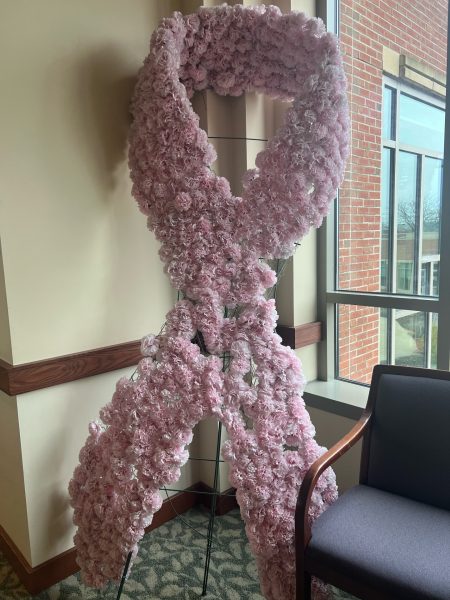 Since I could remember, twice a year my mother would take me to see my pediatrician, whose office is at the OSF Center for Health on Route 91 near the Shoppes at Grand Prairie Mall. The pediatrician’s office was on the second floor, and I would walk past a large standee displaying a 6-foot pink ribbon made out of beautiful silk carnations. Not until I was in middle school did I realize that the standee was placed there because the OSF Center for Breast Health was also on the second floor and that the pink ribbon was a symbol of breast cancer awareness. The pink ribbon was used early on by the Susan G. Koman Breast Cancer Foundation, whose name was later changed to Susan G. Komen for the Cure, to promote awareness about the disease. However, the greatest surprise for me was when I learned that the founder of Susan G. Komen for the Cure is one of the Richwoods alumni, Ms. Nancy G. Brinker. I then started reading about her on her webpage (nancybrinker.com) and read her memoir entitled Promise Me: How a Sister’s Love Launched a Global Movement to End Breast Cancer (2011).
Since I could remember, twice a year my mother would take me to see my pediatrician, whose office is at the OSF Center for Health on Route 91 near the Shoppes at Grand Prairie Mall. The pediatrician’s office was on the second floor, and I would walk past a large standee displaying a 6-foot pink ribbon made out of beautiful silk carnations. Not until I was in middle school did I realize that the standee was placed there because the OSF Center for Breast Health was also on the second floor and that the pink ribbon was a symbol of breast cancer awareness. The pink ribbon was used early on by the Susan G. Koman Breast Cancer Foundation, whose name was later changed to Susan G. Komen for the Cure, to promote awareness about the disease. However, the greatest surprise for me was when I learned that the founder of Susan G. Komen for the Cure is one of the Richwoods alumni, Ms. Nancy G. Brinker. I then started reading about her on her webpage (nancybrinker.com) and read her memoir entitled Promise Me: How a Sister’s Love Launched a Global Movement to End Breast Cancer (2011).
After learning more about Ms. Nancy Brinker and her achievements, I was in awe and mustered the courage to write an email to her asking for an interview. Knowing that she must have a busy schedule, I did not expect a reply. To my surprise, I received an email saying that Ms. Brinker was interested in answering my interview questions and would respond within a week. Since she is living in another state, our interview is via email.
Ms. Nancy Brinker grew up in Peoria and graduated from Richwoods in 1964. After that, Ms. Brinker went on to study at the University of Illinois at Urbana-Champaign and received a bachelor’s degree in 1968. When her beloved sister, Susan G. Komen, was diagnosed with breast cancer in 1977, not much was known about the prognosis and treatment of the disease, especially in a small town like Peoria. After the devastating loss of her sister in 1980, Ms. Brinker was determined to work on bringing awareness of the disease to the general public as well as finding ways to combat it by founding the Susan G. Koman for the Cure foundation in 1982. Despite being diagnosed with breast cancer herself in 1983, Ms. Brinker was not disheartened and continued her work with the foundation. Her role as the founder of Susan G. Komen for the Cure led her to be appointed by President Ronald Reagan in 1986 to be a member of the National Cancer Advisory Board. In 1992, she was appointed by President George H. W. Bush to the President’s Cancer Panel, and in 2001, she was chosen by President George W. Bush to serve as U.S. Ambassador to the Republic of Hungary. Ms. Brinker’s work in promoting breast cancer awareness and research made her receive many awards including the Presidential Medal of Freedom from President Barack Obama in 2009.
When asked about what Peoria was like during the time when she was growing up, Ms. Brinker says that Peoria was “a manufacturing powerhouse, not just in the Midwest but a national leader as well.” She remembers that “families in Peoria were tightknit and there was a strong sense of community and a belief in the promise of America.” Ms. Brinker’s father, Mr. Marvin L. Goodman, was very active in the community. “He believed that no town could be successful unless everyone had a job or role in the growth of the community.” Her mother, Ms. Elinor Goodman, was also very active in the Red Cross and instilled in her “a sense of purpose and the value of working in public life.”
After Ms. Brinker left Peoria to pursue her education and embarked on the journey of public service, she visited Peoria many times. Among the many changes she noticed was the downsizing or closing of the larger manufacturing companies. Those companies, she recalls, “played such a significant role in the daily lives of families.”
To the questions about Richwoods, Ms. Brinker says that when she went to Richwoods, it was a new high school. “We had wonderful, caring and thoughtful leaders that reflected the times and were inspiring.” Ms. Brinker also adds that Richwoods at that time had very good sports programs, but she and her sister did not join any particular sports teams. Their family owned a farm so they would ride horses and enjoyed swimming on the weekends. On the academic side, she personally enjoyed studying science. One of her fondest memories at Richwoods is when her sister was crowned Homecoming Queen and when Ms. Brinker herself was a member of the Homecoming Court during her senior year at Richwoods. Ms. Brinker’s advice to students at Richwoods is that she would encourage students “to develop a strong sense of optimism for the future.”
When she was at the University of Illinois at Urbana-Champaign, Ms. Brinker found college life similar to living in a big city “with a multitude of opportunities to pursue passions and interests.” She enjoyed meeting new people and making lifelong friends while she was in college.
As someone who loves science, it is not surprising that Ms. Brinker sees Marie Curie as a role model. Not only does Ms. Brinker admire Curie for her discovery of radium and polonium and her “indispensable contributions to the fight against cancer,” Ms. Brinker feels inspired by Curie’s “perseverance in the face of tragedy and professional barriers.” She further explains why Curie has made such an impact on female scientists and leaders. “Marie Curie’s life as a scientist was one which flourished because of her ability to observe, deduce and predict. She was the first woman to make such a significant contribution to science – and today, many generations later – her words, deeds and revolutionary discoveries continue to inspire future women leaders in America and throughout the world.”
It has been 42 years since Susan G. Komen for the Cure was founded, and Ms. Brinker is still working relentlessly in spreading awareness about breast cancer as well as helping people who suffer from the disease. What keeps her on this path is “the incredible strength and resilience of the individuals and families affected by breast cancer” she encounters. “Every survivor’s story, every caregiver’s devotion, and every community’s effort to rally around this cause remind me that we’re all part of a much larger movement–one grounded in hope, compassion, and determination,” she reflects. Ms. Brinker acknowledges that it is her sister, Ms. Susan Komen, “whose life and legacy remain at the heart of this mission” and whose courage fuels her commitment in this combat against breast cancer. Yet she also says that “it’s the countless women and men I’ve met along the way–those who refuse to give up, even in the face of tremendous adversity–that keep me going.” By looking solely at the 2023-2024 annual report of Susan G. Komen for the Cure, one will come to understand Ms. Brinker’s passion and determination. According to the report, $2.5 billion has been invested in advocacy and patient support services. As Ms. Brinker says, “knowing that together we can create a world where fewer lives are lost to this disease inspires me to keep pushing forward, raising awareness, and ensuring that every individual has access to the care and support they deserve.” With this strong belief in the power of individuals in making an impact, Ms. Brinker thinks high school students can play an important role in spreading awareness about breast cancer. The following are some suggestions from Ms. Brinker about how high school students can get involved.
- Host Awareness Events: Organize Pink Out Days where students wear pink to school to show support for breast cancer awareness. Plan educational assemblies or workshops featuring guest speakers, such as local health professionals, cancer survivors, or representatives from cancer organizations.
- Leverage Social Media: Create a campaign on platforms like Instagram, TikTok, or Facebook with facts about breast cancer, emphasizing early detection and prevention. Use hashtags like #BreastCancerAwareness or #ThinkPink to amplify the message. Post short, engaging videos or infographics that resonate with their peers.
- Educate Peers: Develop informational posters or flyers with statistics and prevention tips to distribute or display around school. Start a peer-led health club focused on discussing cancer awareness and other health issues affecting their community.
- Engage Through Art: Organize art contests or exhibitions where students create pieces inspired by the breast cancer awareness movement. Produce a short film or skit to perform during school events, highlighting the impact of breast cancer and the importance of early detection.
- Use Sports and Activities: Host a “Pink Game” where school sports teams wear pink uniforms, and attendees are encouraged to donate to breast cancer causes. Organize dance-a-thons, yoga classes, or fitness challenges that promote health and wellness while raising awareness.
All these possibilities to help raise awareness about breast cancer outlined by Ms. Brinker will inspire many students who hope to go out into the world and make a difference like she has done. When asked about what achievement she is most proud of, Ms. Brinker says she is “most grateful for the opportunity to serve in public life.” She specifically refers to her serving as Ambassador to Hungary and the Chief of Protocol for the United States. The reason why Ms. Brinker is proud of her appointed roles is that these roles allowed her “to serve alongside leaders of both parties.” As she states, “patriotism and service should never be viewed as a partisan endeavor.” Her undertaking of those roles leads “not only to bipartisan accolades but also receiving the Presidential Medal of Freedom from President Obama.”
Ms. Brinker, our Richwoods alumna, has shown that an individual can shape and change the trajectory of the society. Out of her love for her sister, Ms. Brinker has unstigmatized the topic of breast health and has brought it to the fore with the founding of Susan G. Komen for the Cure. In so doing, she has saved many lives and has helped many patients who have been afflicted by the disease. With the foundation’s launching of the Global Initiative for Breast Cancer Awareness project, the extensive impact of Ms. Brinker’s initial idea is even more clearly seen. I must admit that it feels good to learn that many of our alumni have made such an impact on the lives of others. Inspired by Ms. Brinker’s compassion and dedication, I have looked up ways to help and found that I can volunteer to help in the 2025 Komen Peoria More Than Pink Walk on Saturday, May 10. This may mark the beginning of my following in the footsteps of Ms. Brinker in fighting against breast cancer.
